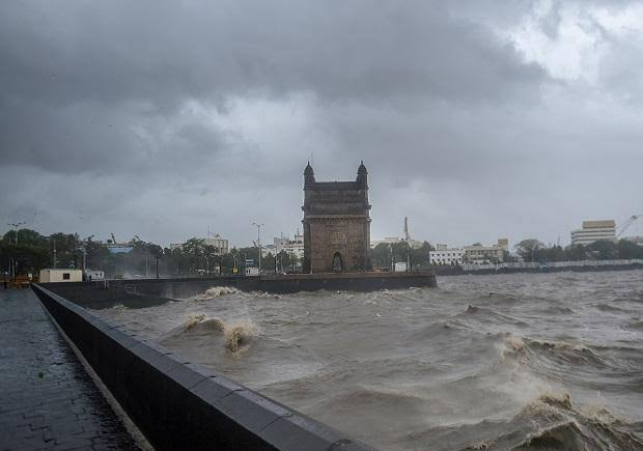

According to a study by experts at the Indian Institute of Tropical Meteorology in Pune, marine heatwaves are on the rise in the Indian Ocean, affecting Indian monsoon rains. According to the researchers, this is the first study to show a relationship between marine heatwaves and atmospheric circulation and rainfall. They stated that because the frequency and intensity of marine heatwaves is growing, it is necessary to improve ocean observational arrays and update weather models.
Such heatwaves occur when the ocean temperature reaches dangerously high levels. According to a study led by climate scientist Roxy Mathew Koll and published in the journal 'JGR Oceans,' these occurrences cause habitat devastation owing to coral bleaching, seagrass destruction, and kelp forest loss, negatively impacting the fisheries industry. Marine heatwaves affect the monsoon by reducing rainfall over the middle Indian subcontinent while increasing it over the southern peninsula, according to the study.
Marine heatwaves have increased significantly, according to the researchers, owing to rapid warming in the Indian Ocean and powerful El Nios (weather event associated with unusual warming of surface waters). After maritime heatwaves in May 2020, 85 percent of the corals in the Gulf of Mannar near the Tamil Nadu coast bleached, according to an underwater survey. Despite the fact that recent research have reported their existence and implications across the global seas, the study found that they are least understood in the tropical Indian Ocean.
"These heatwaves used to be uncommon in the tropical Indian Ocean, but they've now become a yearly occurrence." "Marine heatwaves increased at a pace of roughly 1.5 occurrences per decade in the western Indian Ocean, followed by 0.5 events per decade in the north Bay of Bengal," according to the study.
"The western Indian Ocean experienced 66 incidents between 1982 and 2018, whereas the Bay of Bengal had 94," they stated.
They discovered that marine heatwaves in the western Indian Ocean and the Bay of Bengal cause drying conditions over the central Indian subcontinent.
At the same time, as a result of the heatwaves in the north Bay of Bengal, rainfall in south peninsular India has increased significantly. According to the study, "these shifts are in reaction to heatwaves modulating monsoon winds." Climate model estimates indicate that the Indian Ocean will continue to warm in the future, which will most certainly worsen marine heatwaves and their impact on monsoon rainfall, according to Koll.
"As the frequency, severity, and area covered by marine heatwaves grow, we need to improve our ocean observational arrays to reliably track these events, and update our weather models to skillfully foresee the problems posed by a warming world," he said.
The Indian Institute of Tropical Meteorology is a department of the Union Ministry of Earth Sciences that operates independently.
The south-west, in particular, contributes for roughly 75% of the country's rainfall, which has an impact on the economy, which is still largely reliant on agriculture.
According to a report published last year as part of the Department of Science and Technology's Climate Change programme, the intensity of severe cyclonic storms in the North Indian Ocean region has been growing over the last four decades.
According to the study, meteorological characteristics such as greater relative humidity, especially at the mid-atmospheric level, moderate vertical wind shear, and warm sea surface temperature were responsible for the growing intensity of severe cyclonic storms with considerable socioeconomic consequences. This, it was suggested, underscores the role of global warming in causing this upward tendency.
Also read : Next-Gen Mobile network to be added as online course in IIT Madras